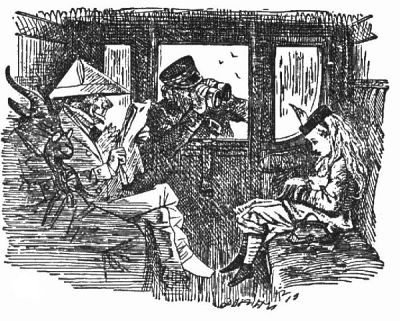
You are sharing a train compartment with two strangers, A and B. You and A each think of a positive integer and whisper it to B. B stands up and says, “This is my stop. You have each thought of a different number. Neither of you can deduce which number is bigger.” He leaves.
You and A regard one another across the compartment. You think, “He cannot have chosen 1, because then he would know immediately that my number is bigger. And he can apply the same reasoning to my number. So it’s certain that neither of us has chosen 1. But once we’ve established that, then it’s equally clear that neither of us can have chosen 2, for the same reason.”
It would seem that you can extend this line of reasoning to include any number you like — including 157, the number you picked. How can this be?
See The Necktie Paradox and Tug of War.
